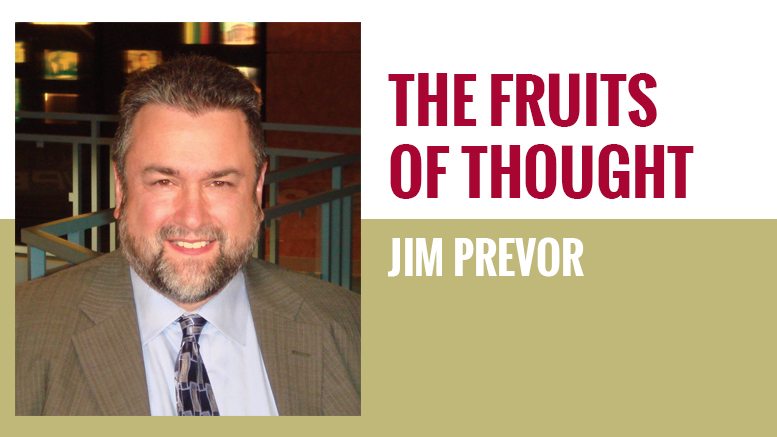Making The Most Of Brexit Negotiations
September 1, 2019 | 4 min to read
In the dynamics of produce negotiations, not revealing your needs is crucial, as it influences pricing. This principle parallels the UK's Brexit strategy; by making a deal with the EU a condition for withdrawal, the UK enhances the EU's leverage. Theresa May's approach lacked the unilateral tactics necessary to shift incentives in the UK's favor. In contrast, Boris Johnson's intent to execute Brexit may finally grant the freedom the British voted for, moving beyond economic considerations to self-identification.

Originally printed in the September 2019 issue of Produce Business.
Rule One of Produce Negotiations: If you are buying fruits and vegetables on a commercial scale, you never call a shipper and ask what the price is on a specific item. To do so would tip off the seller as to your needs and probably influence the price you are offered.

The initial outreach might be, “So, what are you guys working today?” You never want to tip the seller off to what you, as a buyer, actually need. Want to overpay? Start out this way: “I’ve got 20 orders I can’t fill. Do you have any 88-size Washington Extra Fancy Honeycrisp? I have to have them.”
Of course, these negotiating rules apply to everything, not just produce. So those in the UK who claim they want Brexit, but only if they have a deal with the European Union, probably don’t want Brexit at all. The EU is opposed to Brexit. They don’t want it to be a success because if it is a success, France, Italy and half of Europe will want to withdraw.
So, if the UK makes having a deal with Europe the condition of its withdrawal, it is giving the EU an enormous weapon. It will make the price of withdrawal too high.
Had Theresa May simply announced that the UK was leaving at the earliest possible date and had she assumed the EU would not give a fair deal so she didn’t waste time negotiating — and also wouldn’t give money, etc. — it is very possible the EU might have come to the negotiating table knowing they were the ones who wanted a deal.
Another general rule of negotiating is to realize the negotiation is typically over by the time the discussions begin. It is in the creation of the milieu in which the negotiations take place that determines who has the upper hand. In Donald Trump’s book, “The Art of the Deal,” he put it this way: “Leverage is having something the other guy wants. Or better yet, needs. Or best of all, simply can’t do without.”
All during May’s term as prime minister, I kept waiting for her to make some unilateral announcements that would change the internal incentives in the EU. For example, the UK could have announced that, post-Brexit, it was going to be a free port, with no tariffs at all. Though the EU would still be imposing the “no-deal” rate of 10%, many products have imported components from non-EU countries.
If the UK makes having a deal with Europe the condition of its withdrawal, it is giving the EU an enormous weapon.
This would make British manufacturing more competitive. How about the UK announcing it would eliminate its corporate income tax, post-Brexit. All of a sudden, companies would have substantial incentive to incorporate in the UK and to show profits in the UK rather than the EU.
Or, if the EU is playing tough, maybe the UK has to play tough too … in order to create a situation in which it has something the EU “simply can’t do without.” For example, what if the UK announced that effective with Brexit, all countries could ship cars to the UK duty free — except for the EU, which would have to pay the standard WTO tariff rate.
One can imagine the calls to German Chancellor Angela Merkel from Mercedes, BMW, Audi, etc. — “Your negotiations are hurting us in the fourth-largest auto import market in the world. Fix this.”
May seemed incapable of understanding what negotiation actually is or how it is conducted. She thought she just had to go to Brussels and say what she wanted or needed. She paid zero attention to creating an environment in which the EU would need to have a deal with the UK. She didn’t understand telling the EU what she needed almost guaranteed she wouldn’t get it.
Boris Johnson, the UK’s new prime minister, is controversial. Many think he is undisciplined and unruly. But he seems intent on keeping his promise to have the UK exit the European Union by Halloween.
Many are attacking him for asking the Queen to recess Parliament, which has the effect of reducing the time that members of Parliament can look to make trouble for Brexit. They say it is undemocratic. Yet, it is an act in service to executing the will of the people most democratically expressed in the referendum of 2016.
The prime minister seems to understand this key truth: Negotiations between countries continue forever. But the key thing is to leave the EU so as to take preventing Brexit off the table as a tool for the Europeans and the British “remainers.”
Margaret Thatcher famously said, “We have not successfully rolled back the frontiers of the state in Britain, only to see them re-imposed at a European level, with a European super-state exercising a new dominance from Brussels.”
The Brexit vote was not mostly about economic prosperity. It was about self-identification. It was about England; it was about freedom.
With a new prime minister, it seems as though the UK might just get that freedom its people voted for. Let us hope they make the most of it.
33 of 37 article in Produce Business September 2019

